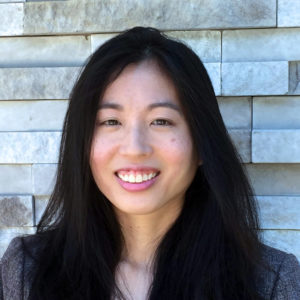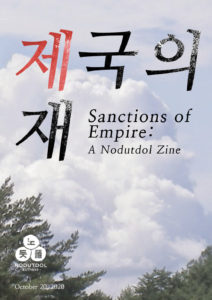 This post was written by Betsy Yoon (@betsyoon), who was selected to be one of this year’s virtual DLF Forum Community Journalists.
This post was written by Betsy Yoon (@betsyoon), who was selected to be one of this year’s virtual DLF Forum Community Journalists.
Betsy Yoon (she/they) is an Adjunct Assistant Professor and OER/Reference Librarian at the College of Staten Island, CUNY and earned her MLIS in 2019. She also has a Master of International Affairs. She lives in occupied Lenapehoking and is a longtime member of Nodutdol, a grassroots organization of diasporic Koreans and comrades working to advance peace, decolonization, and self-determination on the Korean Peninsula and Turtle Island (North America). Interests include critical approaches to OER and openness, the free/libre software movement, understanding and addressing root causes over symptom management, and the role that libraries and archives can play in our collective liberation.
One advantage of attending a virtual Forum is the fact that you no longer have to decide between two interesting panels that are happening at the same time. Before I realized that the sessions would be pre-recorded and available for viewing any time, I pored over the schedule trying to decide which of the two sessions to participate in per time block. What complicated my decision-making process was the fact that I was attending with two different angles. As a librarian, I do reference and work related to Open Educational Resources on my campus. But I am also part of Nodutdol(1), a community organization with a 20-year history in need of archiving and preservation. While not totally distinct (outreach is relevant for both roles, for instance), my two roles occasionally had divergent needs. For example, the Monday 5:00 pm session had both “Where It’s At: Using GIS Tools for Engagement and Outreach at an HBCU Library,” which seemed a good fit for my position in the academic library, and “Linked While Apart: Overcoming Division with Linked Data,” which seemed more applicable to my work with Nodutdol. So you can imagine my delight when I learned that not only would the sessions be available for asynchronous viewing, but that it would also be possible to engage in discussions about the panel on Slack.
The panel that ended up being the most informative for my specific needs was “Finding a Good Fit: Scaling Best Practices for Born-Digital Material to Fit the Needs of Diverse Communities.” The presenters walked us through the process of setting up a small-scale digitization project and emphasized the iterative nature of the process. As a grassroots organization, we do not have the luxury of hiring digitization experts to guide us through the process, and it has been difficult to know how and where to get started. Margo Padilla’s saying that “good enough” digital preservation practices (as opposed to best practices) stood out to me as particularly relevant to my organization’s needs. The description of their organization’s custom modular setup and the numerous resources that the slides linked out to were also very helpful in offering some solid starting points to embark on a “good enough” digital preservation process.

Though the fact that this year’s DLF Forum was digital was due to the constraints of the pandemic, the thoughtful way in which the experience was designed was due to the efforts of the organizers. The asynchronous viewing options, the Slack interface, the provision of presentation slides and transcripts all made it possible for organizations such as mine to benefit from the expertise of the DLF community. While an in-person DLF Forum will no doubt have different considerations, I hope that some of the innovations of this year will be retained for future forums to ensure wide accessibility and participation from a wide variety of organizations and individuals. As a first-time DLF Forum participant, I am grateful to have been able to participate in this year’s virtual forum and look forward to continuing to learn from the DLF community!
(1) Nodutdol is a grassroots organization of diasporic Koreans and comrades based in Lenapehoking/New York City seeking to advance peace, decolonization, and self-determination on the Korean Peninsula and on Turtle Island/North America. We advance our mission through political education, collective action, and principled solidarity.
